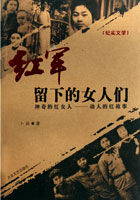Queens of France are happy only so long as they meddle with nothing, and merely preserve influence sufficient to advance their friends and reward a few zealous servants. Do you know what happened to me lately? One day since I began to attend private committees at the King's, while crossing the oiel-de-boeuf, I heard one of the musicians of the chapel say so loud that I lost not a single word, 'A Queen who does her duty will remain in her apartment to knit.' I said within myself, 'Poor wretch, thou art right; but thou knowest not my situation; I yield to necessity and my evil destiny.'"
This situation was the more painful to the Queen inasmuch as Louis XVI. had long accustomed himself to say nothing to her respecting State affairs; and when, towards the close of his reign, she was obliged to interfere in the most important matters, the same habit in the King frequently kept from her particulars which it was necessary she should have known. Obtaining, therefore, only insufficient information, and guided by persons more ambitious than skilful, the Queen could not be useful in important affairs; yet, at the same time, her ostensible interference drew upon her, from all parties and all classes of society, an unpopularity the rapid progress of which alarmed all those who were sincerely attached to her.
Carried away by the eloquence of the Archbishop of Sens, and encouraged in the confidence she placed in that minister by the incessant eulogies of the Abbe de Vermond on his abilities, the Queen unfortunately followed up her first mistake of bringing him into office in 1787 by supporting him at the time of his disgrace, which was obtained by the despair of a whole nation. She thought it was due to her dignity to give him some marked proof of her regard at the moment of his departure; misled by her feelings, she sent him her portrait enriched with jewelry, and a brevet for the situation of lady of the palace for Madame de Canisy, his niece, observing that it was necessary to indemnify a minister sacrificed to the intrigues of the Court and a factious spirit of the nation; that otherwise none would be found willing to devote themselves to the interests of the sovereign.
On the day of the Archbishop's departure the public joy was universal, both at Court and at Paris there were bonfires; the attorneys' clerks burnt the Archbishop in effigy, and on the evening of his disgrace more than a hundred couriers were sent out from Versailles to spread the happy tidings among the country seats. I have seen the Queen shed bitter tears at the recollection of the errors she committed at this period, when subsequently, a short time before her death, the Archbishop had the audacity to say, in a speech which was printed, that the sole object of one part of his operations, during his administration, was the salutary crisis which the Revolution had produced.
The benevolence and generosity shown by the King and Queen during the severe winter of 1788, when the Seine was frozen over and the cold was more intense than it had been for eighty years, procured them some fleeting popularity. The gratitude of the Parisians for the succour their Majesties poured forth was lively if not lasting. The snow was so abundant that since that period there has never been seen such a prodigious quantity in France. In different parts of Paris pyramids and obelisks of snow were erected with inscriptions expressive of the gratitude of the people. The pyramid in the Rue d'Angiviller was supported on a base six feet high by twelve broad; it rose to the height of fifteen feet, and was terminated by a globe. Four blocks of stone, placed at the angles, corresponded with the obelisk, and gave it an elegant appearance. Several inscriptions, in honour of the King and Queen, were affixed to it. I went to see this singular monument, and recollect the following inscription "TO MARIE ANTOINETTE.
"Lovely and good, to tender pity true, Queen of a virtuous King, this trophy view;
Cold ice and snow sustain its fragile form, But ev'ry grateful heart to thee is warm.
Oh, may this tribute in your hearts excite, Illustrious pair, more pure and real delight, Whilst thus your virtues are sincerely prais'd, Than pompous domes by servile flatt'ry rais'd."
The theatres generally rang with praises of the beneficence of the sovereigns: "La Partie de Chasse de Henri IV." was represented for the benefit of the poor. The receipts were very considerable.
When the fruitless measure of the Assembly of the Notables, and the rebellious spirit in the parliaments, [The Assembly of the Notables, as may be seen in Weber's --
Memoirs," vol. i., overthrew the plans and caused the downfall of M. de Calonne. A prince of the blood presided over each of the meetings of that assembly. Monsieur, afterwards Louis XVIII., presided over the first meeting.
"Monsieur," says a contemporary, "gained great reputation at the Assembly of the Notables in 1787. He did not miss attending his meeting a single day, and he displayed truly patriotic virtues.
His care in discussing the weighty matters of administration, in throwing light upon them, and in defending the interests and the cause of the people, was such as even to inspire the King with some degree of jealousy. Monsieur openly said that a respectful resistance to the orders of the monarch was not blamable, and that authority might be met by argument, and forced to receive information without any offence whatever."--NOTE BY THE EDITOR.] had created the necessity for States General, it was long discussed in council whether they should be assembled at Versailles or at forty or sixty leagues from the capital; the Queen was for the latter course, and insisted to the King that they ought to be far away from the immense population of Paris. She feared that the people would influence the deliberations of the deputies; several memorials were presented to the King upon that question; but M. Necker prevailed, and Versailles was the place fixed upon.














